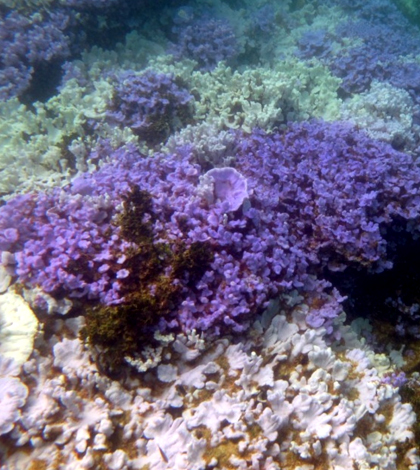Study Backs Geoengineering To Reduce Mass Coral Bleaching Risk

Healthy lavender corals alongside white coral bleached from thermal stress near Lisianski Island. (Credit: National Oceanic and Atmospheric Administration and the Hawaii Institute of Marine Biology)
A promising geoengineering technique gives some new hope for the survival of coral reef systems threatened by rising ocean temperatures and ocean acidification, according to a recent press release from the University of Exeter
The geoengineering technique, called solar radiation management. The method injects gas into the stratosphere, forming microparticles that reflect solar radiation. This reflection mitigates the increase of ocean surface temperatures and would help prevent coral from bleaching.
Although bleached coral are not dead, a bleached state indicates that the coral is under stress and its symbiotic algae has been expelled, making it vulnerable to die-off.
Even the most optimistic climate model estimations of carbon reduction strategies indicate that more than carbon reduction will be needed to save coral from bleaching and massive die-offs in the future. The researchers cite solar radiation management as one of the few techniques that could counteract higher ocean temperatures in the future, hopefully containing the spectre of massive coral bleachings and coral death.
Featured Image: Healthy lavender corals alongside white coral bleached from thermal stress near Lisianski Island. (Credit: National Oceanic and Atmospheric Administration and the Hawaii Institute of Marine Biology)




0 comments